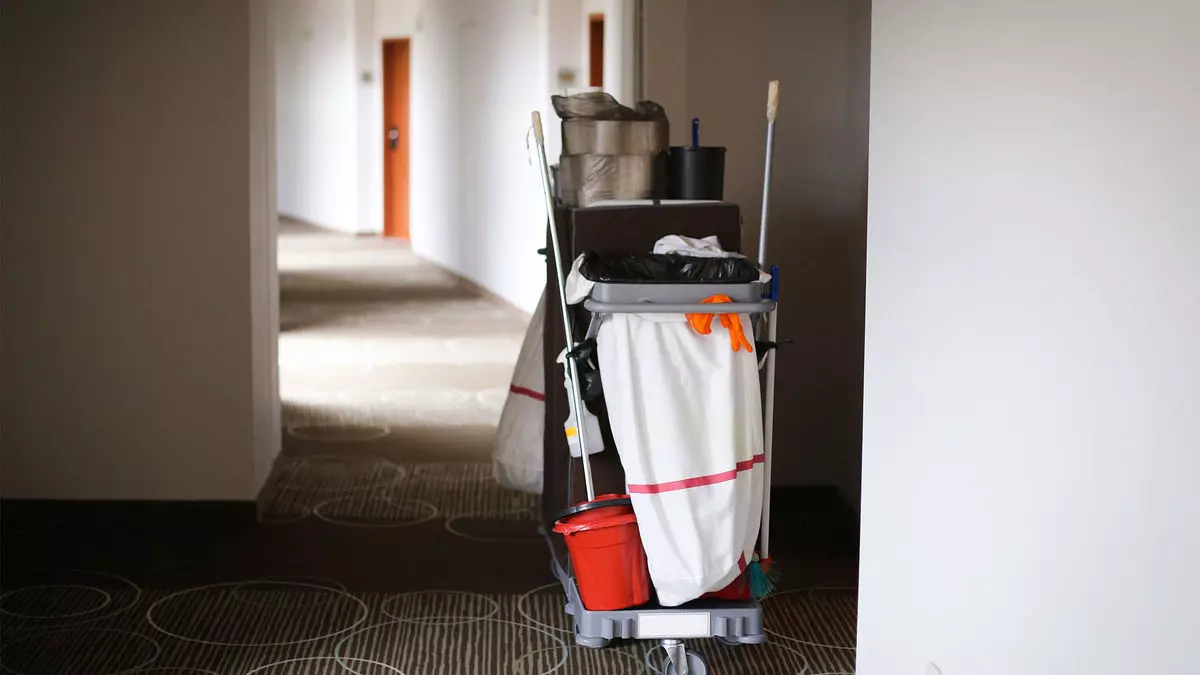The job of a hotel housekeeper is often underestimated, with workers like Fatima Amahmoud at the Moxy Boston Downtown facing seemingly impossible tasks. With up to 17 rooms to clean each shift, the pressure is immense. Instances like finding three days worth of dog fur in a room make it clear that the 30 minutes allocated for each room is simply not enough. The decline in daily cleaning options, under the guise of being environmentally friendly, has led to increased workloads for housekeepers like Amahmoud. Unionized workers have been vocal in their demands for automatic daily room cleaning at major hotel chains, citing unmanageable workloads and income declines, as well as sporadic hours. The ongoing dispute highlights the frustrations of hotel workers who have faced job losses and now confront chronic staffing shortages and changing travel patterns.
The aftermath of the Covid-19 pandemic has hit low-wage women, especially Black and Hispanic women working in the hospitality industry, the hardest. Even as women return to work post-pandemic, there remains an evident gap in employment rates between women with and without college degrees. The U.S. hotel industry has witnessed a significant decline in staffing, with a considerable portion of building housekeepers being women, particularly women of color and immigrants. The labor unrest reflects the need to address undervaluation of hospitality work and secure fair compensation for service workers from marginalized backgrounds.
Union president Gwen Mills describes the contract negotiations as part of an ongoing struggle to establish reasonable pay and conditions for service workers in the hospitality sector. The recent victories in California, where wage hikes and fair workload guarantees were secured for housekeepers, serve as a beacon of hope for workers in other states. However, challenges remain, with the American Hotel and Lodging Association reporting critical staffing shortages in the industry. Hotel workers like Maria Mata face financial insecurity due to irregular work schedules, highlighting the need for stable employment and fair compensation for workers in the sector.
The Fight for Dignity and Recognition
Hotel workers, such as Nely Reinante at the Hilton Hawaiian Village, find themselves constantly advocating for their worth and the importance of their services. Following the pandemic, efforts to reinstate daily room cleaning have been met with resistance from hotels looking to cut costs and reduce services. The battle over daily cleaning services underscores the broader struggle faced by hotel workers in securing fair wages, stable hours, and respect for their labor. While the industry has seen a rebound post-pandemic, challenges persist for frontline workers grappling with demanding workloads and inadequate pay.
The plight of hotel housekeepers is a stark reminder of the underlying issues within the hospitality industry. While hotels strive to recover from the pandemic and attract guests, it is crucial to remember the workers who keep the industry running. The fight for fair wages, stable hours, and dignity in the workplace is ongoing, with unionized workers leading the charge for better working conditions. As we navigate the post-pandemic world, it is essential to recognize and appreciate the unseen struggles of hotel housekeepers who work tirelessly to ensure a comfortable stay for guests.

